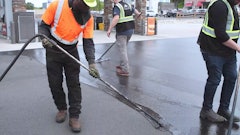
Among the 24 technical sessions to be presented at National Pavement Expo 2019, Feb. 27- March 2 in Nashville, will be 14 paving-focused topics – five of which are new to NPE and five of which will take an updated approach or include new video.
Among the new paving-focused topics are:
“Best Practices” for Installing Paving Synthetics – Mounque “Monk” Barazone, Geotextile Apparatus Co. In the session Barazone, an expert on fabrics, grids, hybrid mats and composites, will detail how each product is meant for a specific application and each requires different installation techniques. “Parking lots, airports, city streets, highways, mountain roads, mobile home parks and even tennis courts all have different installation needs – you’ll learn how to avoid costly problems and mistakes of “the WOOs” (Wrinkles, Oil, Overlaps) and turn them into “WOWs” increasing profits, reducing installation costs, increasing project efficiency, preventing injuries, and maximizing the synthetics long-term benefits.”
“Best Practices” of Residential and Commercial Paving – Brian Hall, VT LeeBoy, will explain “effective, efficient and time-tested paving practices” that help contractors sculpt pavement “to meet – in some cases – extreme geometric and grade constraints.” Hall, will cover proper paving practices, safety on the jobsite and practices to increase efficiency “that will ultimately lead to more profitable work, a higher-quality job and greater referral business.” He’ll also introduce innovations “that can impact each and every commercial or residential paving job.”
Small Paving Jobs: Tips to Improve Efficiency, Quality – and Profitability – A tag-team session presented by Pavement Magazine Advisory Board members Vinny Engongoro, Roccie’s Asphalt Paving, and Chris Tammany, Petra Paving, this new session is a “how-to” focused on the smaller-scale asphalt paving projects that dominate the market. Engongoro and Tammany, who specialize in residential jobs, will “work you through a number of small paving jobs starting at excavation and working through grading to completion.” They’ll cover the logistics of planning and scheduling smaller paving projects, take you step by step through jobs, and teach how to handle the most-common challenges facing contractors on small jobs.
How Your Paver Operates – and How Its Operations Impact Your Bottom Line -- Jim Scherocman, consulting engineer and long-time NPE presenter will help contractors understand that they can improve their paving process and produce a better quality pavement by gaining a better understanding of the most important element in your operation: your asphalt paver. Scherocman will cover the workings of the paver from front to back, covering its component parts, how they work together to produce a quality mat, and what you need to know to make sure they are functioning optimally. The tractor unit, hopper, hopper wings, flow gates, flow control sensors will be covered. He’ll also cover the screed unit, discussing the head of material, paver speed, manual thickness control, and the workings and importance of a free floating screed. Plus, he’ll offer field-proven tips that will improve the loading and unloading of your haul trucks.
Paving Operations: How to “Train the Trainer” – Longtime NPE presenter and noted field consultant John Ball, Top Quality Paving, will teach owners and supervisors how to “train the trainer” so crews can be taught to do a better paving job. In addition to discussing the relationship among the HMA plant, trucking, paving speed, and compaction, Ball will explain what each person on the crew needs to be responsible for and how to train for each position. He’ll also discuss why the trainer needs to teach the crews that can help generate additional unplanned profit on almost every job.
Asphalt Institute at NPE 2019
Among the updated paving sessions are three Asphalt Institute-sponsored sessions presented by Wayne Jones, Asphalt Institute senior regional engineer. The three sessions return as top-rated sessions since they were introduced at NPE several years ago.
Materials Selection: Matching the Right Materials to the Right Project – In this 90-minute session, Jones answers a broad variety of material-related questions so contractors such as, Can I pave a residential driveway with a DOT mix? How can I avoid customers holding up payment because the mat “looks too coarse”? His insights will provide the knowledge of asphalt materials and mix designs to help contractors make projects easier to pave, look better, sell faster, and be more profitable. With 39 years of paving industry experience, Jones was the lead author on both the Asphalt Institute’s MS-16 Manual: Asphalt in Pavement Maintenance and Preservation, and the MS-22 Manual: Quality Asphalt Construction.
Introduction to Thickness Design and Pavement Distresses – In this session, which is also 90 minutes, Jones will cover the basics of pavement design and what makes pavements fall apart. He will introduce free web-based thickness design tools that allow contractors to design a pavement specifically for each customer. Jones will also discuss “the distresses that attack asphalt pavements causing them to fail” so that contractors “can make the best-possible repair decisions for your clients.” Suggestions on how to improve project quality and attract repeat customers without adding additional cost will be included.
Understanding Pavement Evaluation, Preservation and Repair Options – In this 3-hour workshop, Jones’ goal is to help contractors “do a better job for your clients by making sure your pavement repairs treat the cause of the problem and not the symptom.” He’ll cover the distresses and cure options for all types of pavement defects – plus he’ll help contractor understand “how the pavement surface can give you insights into what’s going on beneath the pavement.” Once he’s covered pavement evaluation he’ll outline “best practices” for repairing an asphalt pavement and provide specific tips on how to “up-sell” your operations to solve long-term problems for your customers.
Attendees at each of the Asphalt Institute sessions will receive certificates granting 3.0 Professional Development Hours (PDHs).
More Updated Paving Sessions
Diagram It! How to Pave a Parking Lot & a Cul-de-Sac from Start to Finish – Ball, who has presented this session for several years, will update the parking lot diagram to help show contractors the step-by-step process how each job should be done. Supported by his “patented” on-the-job videos, Ball will work through how to determine the amount of mix for each job, how to determine haul truck size and delivery schedule, how to “line-out” the start of the work and plan the paving, how to achieve the required slope and density, and team member responsibilities. He’ll help solve some of the challenges facing these two jobs and he’ll provide “best practices” to guarantee quality and efficiency.
Solving the Paving Puzzle: Video Solutions Show How a Job Fits Together – In another highly rated repeat session at NPE, Ball says “all phases of paving are ‘most important’ and he’ll cover each one to prove his point. Ball, who spends more than 30 weeks a year on the road shooting video on paving jobsites to help contractors improve their paving operation will put that video to heavy use creating a “case study” for this special paving session. Ball will “take apart” an entire paving job, then put it back together via video to show not only all the elements of a successful paving job but how those elements come together. Job planning (including determining tonnage, delivery pace and production speed), crew meetings, paving layout, paving, and rolling will be featured; video will reveal “best practices” for each element of the job.
Two other highly rated paving sessions, both by Scherocman, will be presented again at NPE.
Effective Compaction of Hot Mix Asphalt – “Compaction is the single most important factor in the ultimate performance of a hot mix asphalt pavement,” and Scherocman will help paving crews understand the basic elements of compaction and the use of various types of rollers, including static steel wheel, pneumatic tire and vibratory steel wheel rollers. Use of different rollers and rolling patterns for different paving situations will be emphasized.
Identifying, Preventing and Solving Mat Problems – In this session Scherocman will help paving contractors identify potential problems in the asphalt mat so they can provide a better end product for their customers. He’ll start by explaining how to differentiate among four primary problem areas: the properties of the mix itself (checking, shoving, rutting, moisture content, bleeding); site-related conditions (milling, minimum layer thickness, tack coat application, soft subgrade); equipment-related problems (screed settings, surface shadows, streaks); and long-term durability issues (raveling, sliding, fatigue cracking, delamination, drainage structures). Then he’ll explain steps contractors can take to prevent these problems from happening (and correct them when they do occur).
For complete details on these and all 54 NPE 2019 conference sessions visit www.nationalpavementexpo.com.






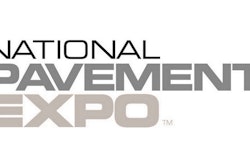

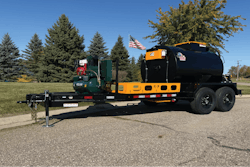

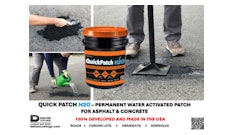
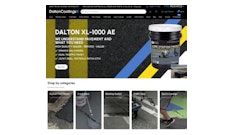
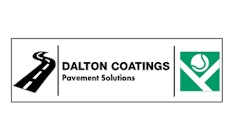

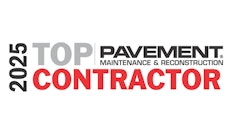


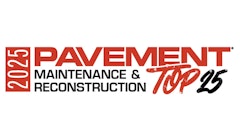
![Pavement Awards 2025[main]](https://img.forconstructionpros.com/files/base/acbm/fcp/image/2024/05/PavementAwards_2025_main_.665883e4276e8.png?ar=16%3A9&auto=format%2Ccompress&bg=fff&fill-color=fff&fit=fill&h=135&pad=5&q=70&w=240)

